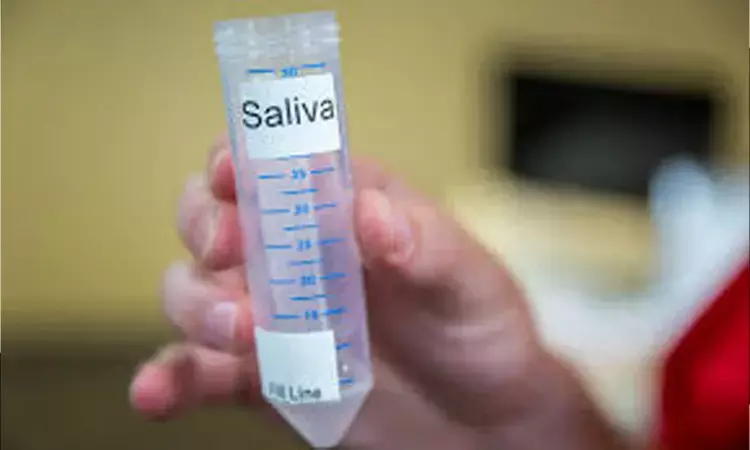- Home
- Medical news & Guidelines
- Anesthesiology
- Cardiology and CTVS
- Critical Care
- Dentistry
- Dermatology
- Diabetes and Endocrinology
- ENT
- Gastroenterology
- Medicine
- Nephrology
- Neurology
- Obstretics-Gynaecology
- Oncology
- Ophthalmology
- Orthopaedics
- Pediatrics-Neonatology
- Psychiatry
- Pulmonology
- Radiology
- Surgery
- Urology
- Laboratory Medicine
- Diet
- Nursing
- Paramedical
- Physiotherapy
- Health news
- Fact Check
- Bone Health Fact Check
- Brain Health Fact Check
- Cancer Related Fact Check
- Child Care Fact Check
- Dental and oral health fact check
- Diabetes and metabolic health fact check
- Diet and Nutrition Fact Check
- Eye and ENT Care Fact Check
- Fitness fact check
- Gut health fact check
- Heart health fact check
- Kidney health fact check
- Medical education fact check
- Men's health fact check
- Respiratory fact check
- Skin and hair care fact check
- Vaccine and Immunization fact check
- Women's health fact check
- AYUSH
- State News
- Andaman and Nicobar Islands
- Andhra Pradesh
- Arunachal Pradesh
- Assam
- Bihar
- Chandigarh
- Chattisgarh
- Dadra and Nagar Haveli
- Daman and Diu
- Delhi
- Goa
- Gujarat
- Haryana
- Himachal Pradesh
- Jammu & Kashmir
- Jharkhand
- Karnataka
- Kerala
- Ladakh
- Lakshadweep
- Madhya Pradesh
- Maharashtra
- Manipur
- Meghalaya
- Mizoram
- Nagaland
- Odisha
- Puducherry
- Punjab
- Rajasthan
- Sikkim
- Tamil Nadu
- Telangana
- Tripura
- Uttar Pradesh
- Uttrakhand
- West Bengal
- Medical Education
- Industry
Hyposalivation linked to severity of disease among psoriasis patients, States study

A recent study published in the Biotechnology and Applied Biochemistry journal illuminated the significant impact of psoriasis on salivary gland function which revealed critical insights into the effect of psoriasis on saliva secretion and associated cytokine biomarkers.
The research was conducted with a robust sample of 120 individuals and included a total of 60 patients diagnosed with active psoriasis and 60 healthy controls matched by age and gender to ensure accuracy and reliability. This research collected unstimulated whole saliva from all participants using the spitting method which is a standard and non-invasive procedure. The study evaluated the levels of several key cytokines, which were tumor necrosis factor-alpha (TNF-α), interferon-gamma (IFN-γ), interleukin-2 (IL-2) and interleukin-10 (IL-10). These cytokines were measured using enzyme-linked immunosorbent assay (ELISA) techniques provided by BT Lab, Shanghai, China.
The key findings illuminated a significant reduction in saliva secretion among psoriasis patients when compared to healthy controls. This hyposalivation was closely linked to the severity and duration of the disease. The results of this study showed that patients with more severe psoriasis expressed markedly lower salivary flow rates. This reduction in saliva production was accompanied by a notable increase in pro-inflammatory cytokines (TNF-α, IFN-γ, and IL-2) and a reduction in the anti-inflammatory cytokine IL-10 in the saliva of psoriasis patients.
The elevated levels of pro-inflammatory cytokines suggest an elevated inflammatory response within the salivary glands of individuals with psoriasis. Also, the reduction in IL-10 indicates a diminished anti-inflammatory response which further contributes to the glandular inflammation and reduced saliva production observed in these patients.
This study found no significant correlation between the levels of tested cytokines and the salivary flow rates by indicating that while cytokine levels are altered, they do not directly predict the amount of saliva produced. However, the overall findings underline a significant negative correlation between salivary flow rates and the severity of psoriasis that emphasizes the impact of the disease on gland function.
These findings suggest that the inflammatory processes affecting the salivary glands, driven by increased pro-inflammatory and decreased anti-inflammatory cytokine levels, play a pivotal role in the diminished saliva secretion observed in the psoriasis patients. This research highlights the broader systemic effects of psoriasis that extend beyond the skin to influence oral health and glandular function. Overall, these outcomes suggest that monitoring cytokine levels and salivary flow rates could become an integral part of managing psoriasis. This approach may helps in understanding the progression of disease and its impact on the overall health of patients.
Reference:
Sharma, R. K., Sharma, M. R., Mahendra, A., Singh, S., Sood, S., Upadhyay, S. K., & Sharma, A. K. (2024). Hyposalivation in patients with psoriasis: Association with severity, inflammatory, and anti‐inflammatory cytokine biomarkers of the disease. In Biotechnology and Applied Biochemistry. Wiley. https://doi.org/10.1002/bab.2619
Neuroscience Masters graduate
Jacinthlyn Sylvia, a Neuroscience Master's graduate from Chennai has worked extensively in deciphering the neurobiology of cognition and motor control in aging. She also has spread-out exposure to Neurosurgery from her Bachelor’s. She is currently involved in active Neuro-Oncology research. She is an upcoming neuroscientist with a fiery passion for writing. Her news cover at Medical Dialogues feature recent discoveries and updates from the healthcare and biomedical research fields. She can be reached at editorial@medicaldialogues.in
Dr Kamal Kant Kohli-MBBS, DTCD- a chest specialist with more than 30 years of practice and a flair for writing clinical articles, Dr Kamal Kant Kohli joined Medical Dialogues as a Chief Editor of Medical News. Besides writing articles, as an editor, he proofreads and verifies all the medical content published on Medical Dialogues including those coming from journals, studies,medical conferences,guidelines etc. Email: drkohli@medicaldialogues.in. Contact no. 011-43720751


